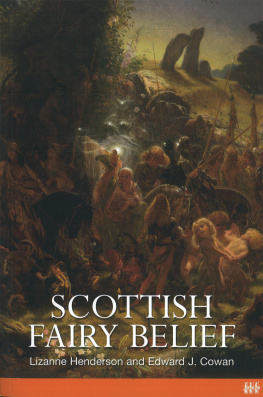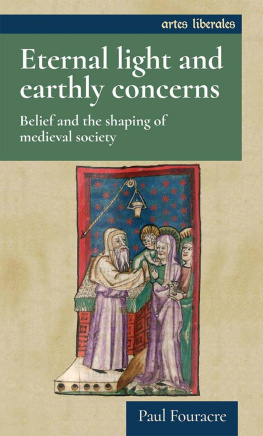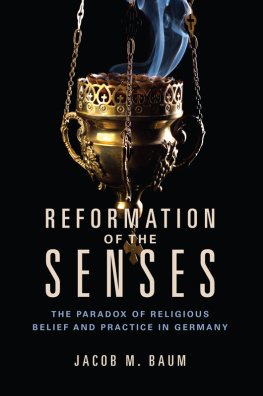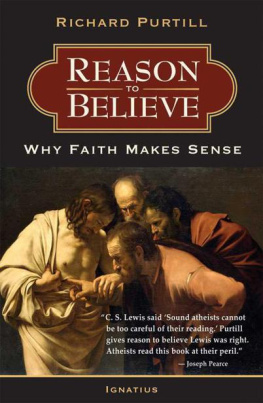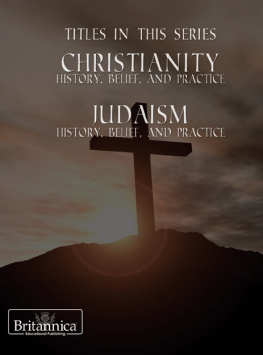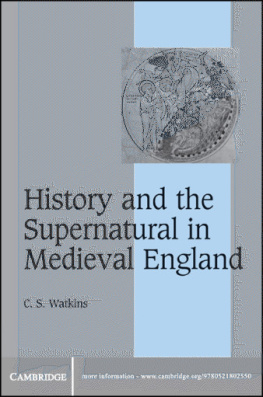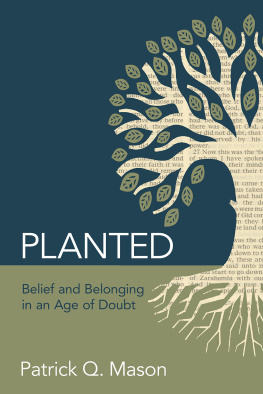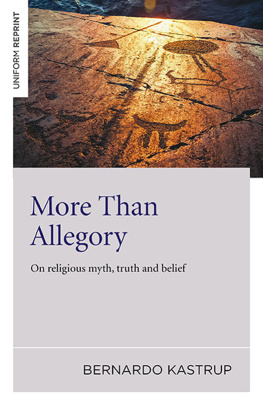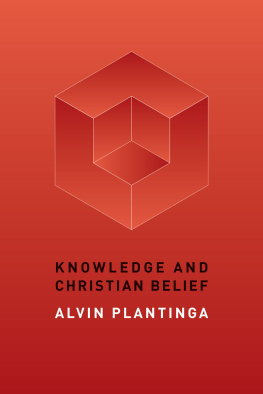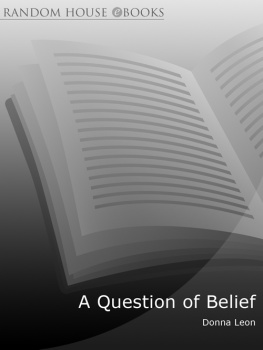Contents
Guide
Page List
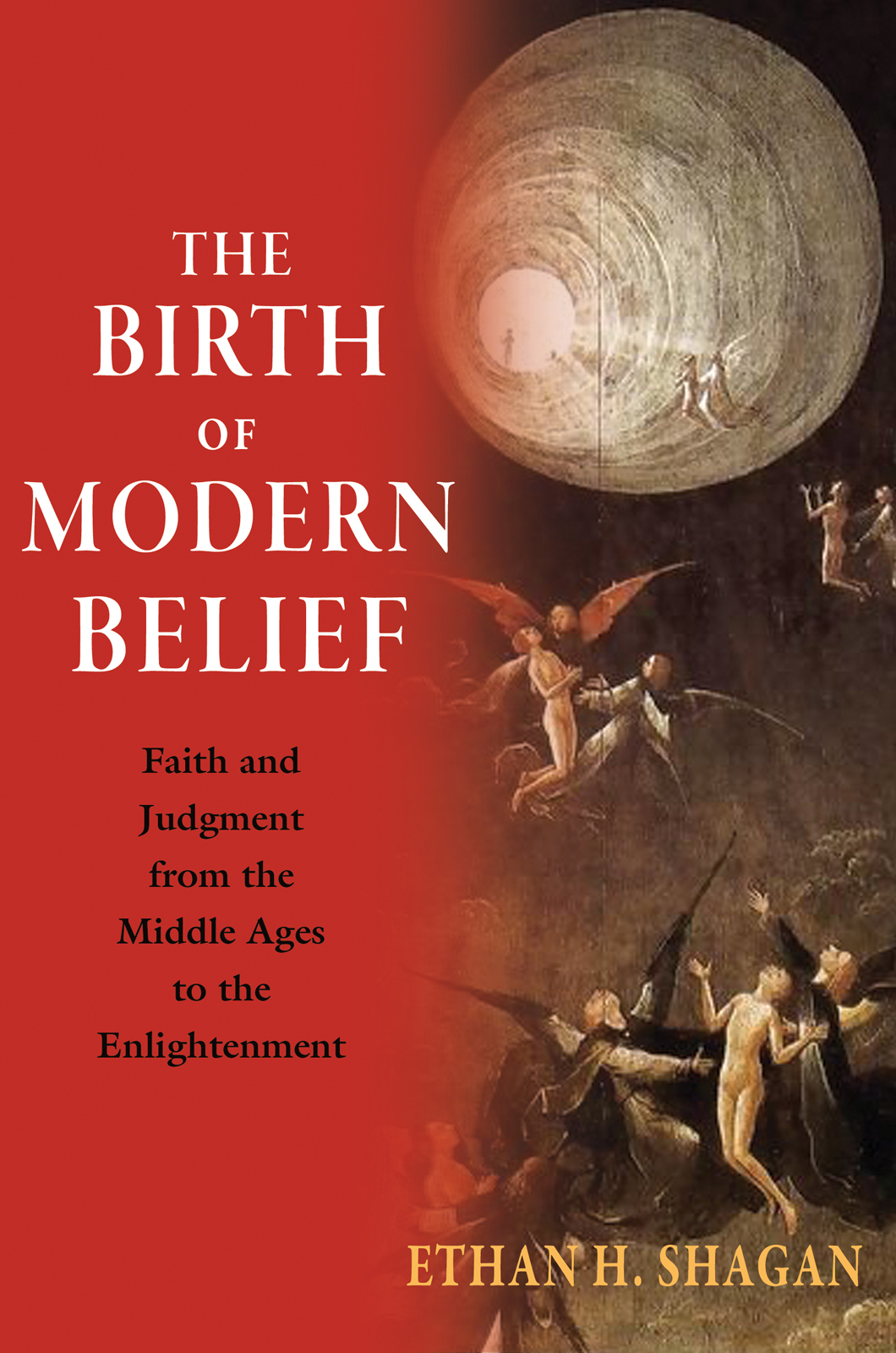
THE BIRTH OF MODERN BELIEF
The Birth of Modern Belief
FAITH AND JUDGMENT FROM THE MIDDLE AGES TO THE ENLIGHTENMENT

Ethan H. Shagan
PRINCETON UNIVERSITY PRESS
PRINCETON & OXFORD
Copyright 2018 by Princeton University
Published by Princeton University Press
41 William Street, Princeton, New Jersey 08540
6 Oxford Street, Woodstock, Oxfordshire OX20 1TR
press.princeton.edu
All Rights Reserved
Library of Congress Control Number: 2018937605
ISBN 978-0-691-17474-7
eISBN 978-0-691-18494-4 (ebook)
Version 1.0
British Library Cataloging-in-Publication Data is available
Editorial: Brigitta van Rheinberg, Eric Crahan, and Pamela Weidman
Production Editorial: Karen Carter
Jacket Design: Lorraine Doneker
Jacket/Cover Credit: Hieronymus Bosch (c. 14501516),
Ascent of the Blessed, c. 1500, oil on panel, 86.5 cm 39.5 cm
Production: Jacquie Poirier
Publicity: Tayler Lord
Copyeditor: Karen Verde
This book has been composed in Miller
Printed on acid-free paper.
Printed in the United States of America
10 9 8 7 6 5 4 3 2 1
For Jonathan Sheehan
CONTENTS
ix
PREFACE AND ACKNOWLEDGMENTS
LEO TOLSTOY once likened historians to deaf people who go on answering questions no one has asked. That is a fair description of what it has felt like to write this book. People often ask me about religious beliefs, but no one ever asked me about the history of belief itself, and colleagues give me strange looks when I tell them about it anyway. I have tried to dispel their perplexity by describing my project as Shapin for religion: that is, like Steven Shapins classic A Social History of Truth, but with religious rather than scientific knowledge as its focus. But in the end that is only partially accurate, both because I cannot live up to such a high standard, and because Shapin focused like a laser on a particular moment, while I range over centuries to trace the origins of what I argue is a peculiarly modern credulity. My effort to write a history of modern belief is therefore (at least in part, and with due deference to my predecessors) an attempt to create a subject. Is Tolstoys historian more or less pitiable if, rather than being deaf, he merely insists that people have not been asking him the right questions?
My inspirations to attempt such sweeping folly are two of my many mentors: Ted Rabb and the late Lawrence Stone. I admit Stones influence only with hesitation, because he was so often accused of exceeding the bounds of his expertise. In what remains one of the most acerbic academic reviews of all time, Edward Thompson wrote, Where other historians might spend weeks in covering up their own sensitive areas of ignorance, Stone shouts, Dont know! and walks blithely into them. My excuse for following Stone into those sensitive areas is that, having tried with inevitably limited success (but for much more than weeks!) to cover my own boundless ignorance, I nonetheless continue to believe that the real point of cobbling together learning is to be able to write books about forests rather than trees. Rabbs influence is less fraught and more practical. In his landmark 1975 book, The Struggle for Stability in Early Modern Europe, he explained that the era was defined by a crisis of epistemic authority: political, economic, artistic, and religious debates all reduced to the fundamental question, Can one rely on anything? As a mentor, he impressed upon me that early modernity is the most fascinating era in European history because it was an epistemic watershed between past and present. If this book contributes anything to our understanding of that epochal transformation, it is because of his influence.
But those were early inspirations; more proximately, I owe thanks to many scholars, both at Berkeley and elsewhere, who have helped me to make sense of this vast, sprawling subject. My greatest intellectual debt by far is to Jonathan Sheehan. For a long time, he and I intended to write this book together; during our regular morning coffees over several years, we bounced ideas off of one another and honed our sense of the problem. It is my deepest regret that, on the heels of another collaboration, he felt obliged to go in his own direction. But his fingerprints are everywhere in these pages. This would have been a very different book, and a far better one, if he had written it with me, but nonetheless it is much better for his influence. I dedicate this book to him with profound gratitude.
I have also been blessed to have at Berkeley a lively community of fellow scholars who have been barking up similar trees. Barbara Shapiro, Vicky Kahn, and Albert Ascoli have all written about the history of belief/faith from their different disciplinary perspectives, and I have benefited enormously from my conversations with them. In particular, in 2012 Albert and I co-convened a Collaborative Research Seminar entitled Problems of Faith: Belief and Promise in Medieval and Early Modern Europe, generously funded by the Townsend Center for the Humanities, in which an interdisciplinary community of students and faculty met for weekly discussions; I owe profound thanks to the participants, especially the students who offered such original and compelling insights. Then in 2013, building on those discussions, we convened a large international conference, and I owe thanks to the participants for all that I learned from their presentations and engagement: Albert Ascoli, Lorna Hutson, Craig Muldrew, Walter Stephens, Joanna Picciotto, Edward Muir, Alex Dubilet, Robert Harkins, Jess Herdman, Lili Loofbourow, Steven Justice, Niklaus Largier, Nick Popper, Giovanna Ceserani, Jane Tylus, Diego Pirillo, Claire McEachern, David Marno, and Jonathan Sheehan.
Earlier versions of this book, or of individual chapters, were read by Jonathan Sheehan, Carla Hesse, Tom Laqueur, Mark Peterson, Alec Ryrie, Vicky Kahn, Steve Justice, Ed Muir, Bruce Gordon, Kinch Hoekstra, Susanna Elm, Geoff Koziol, Maureen Miller, and Tony Grafton. I owe them all enormous thanks, both for their comments and for their patience in slogging through what were sometimes very primitive versions. I have also benefited from conversations with many scholars with overlapping interests, including James Simpson, Kathryn Murphy, Alastair Bellany, Subha Mukherji, Peter Lake, George Hoffmann, Helena Skorovsky, Jane Shaw, Brad Gregory, Randall Zachman, Craig Harline, Debora Shuger, Regina Schwartz, David Sacks, Chris Ocker, Erik Midelfort, Remi Alie, Diarmaid MacCulloch, John Morrill, and many others whom I fear I am forgetting. At the Crossroads of Knowledge conference at Cambridge in 2012, I was privileged to engage with many fine scholars working at the intersection of religion and epistemology whom I would not otherwise have met, of whom I would like to thank particularly Sophie Read, Tim Stuart-Buttle, Tobias Gregory, and the indomitable Rowan Williams.
Material from this project has been presented at numerous scholarly venues: the Centre for Research in the Arts, Social Sciences and Humanities, Cambridge University; the Sixteenth Century Studies Conference (twice); the joint conference of the American Society for Church History and the American Catholic Historical Association; a conference entitled Rethinking Early Modernity at the University of Toronto; Clio Taiwan; Brigham Young University; Columbia University; Baylor University; the North American Conference on British Studies; and multiple times at different venues at the University of California, Berkeley. I owe thanks to all of the audiences for their constructive criticisms, without which this would be a much weaker book.


